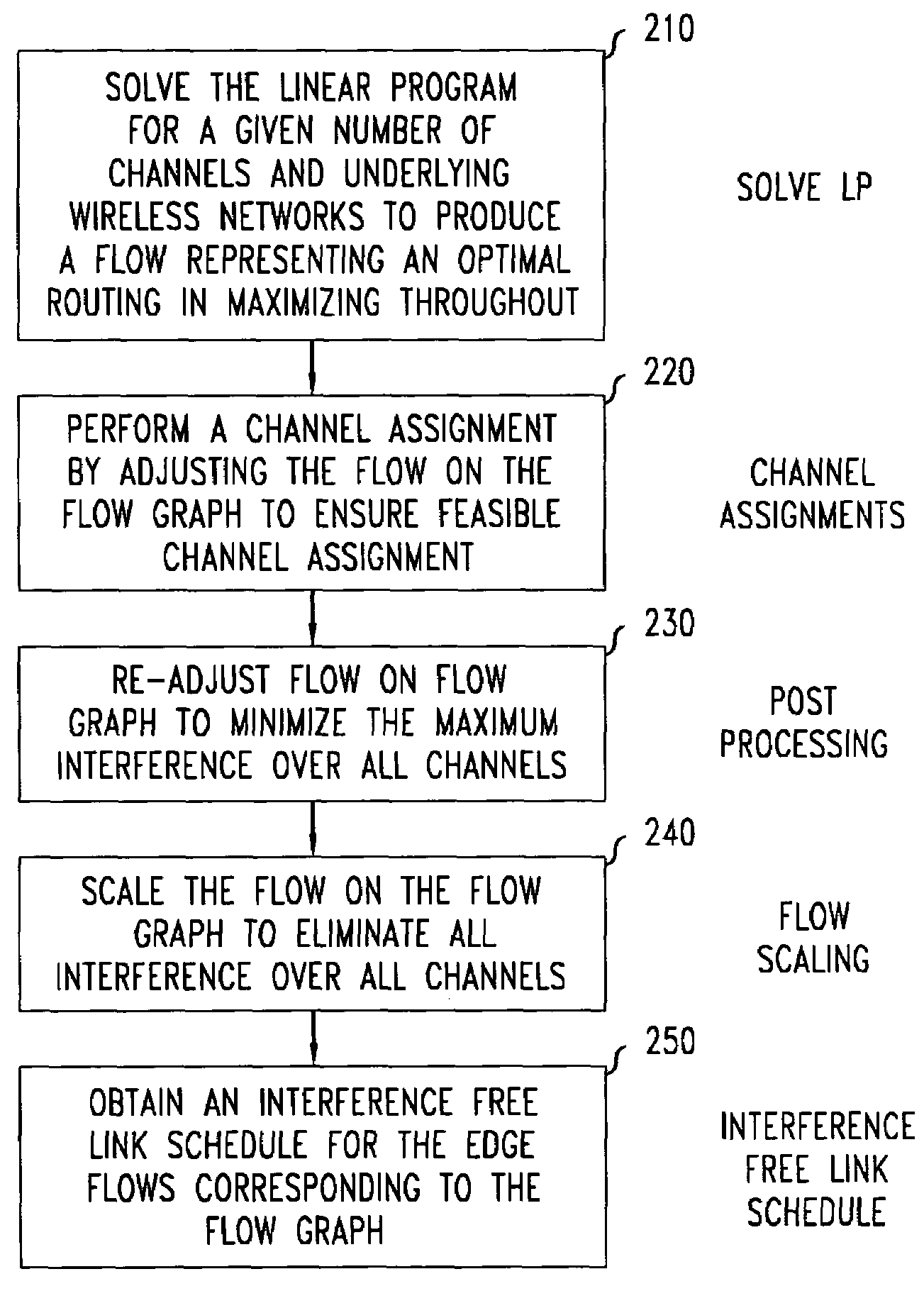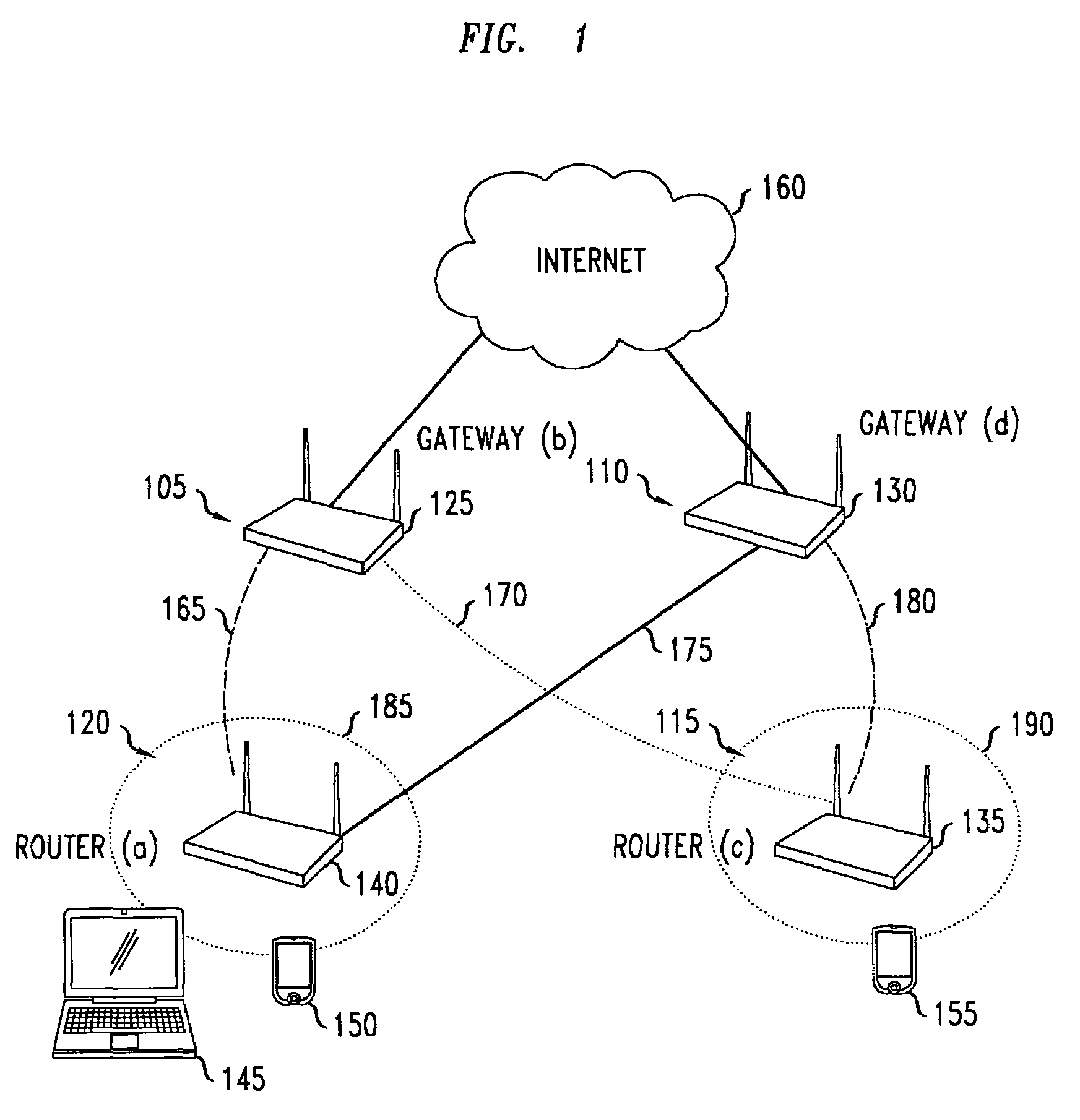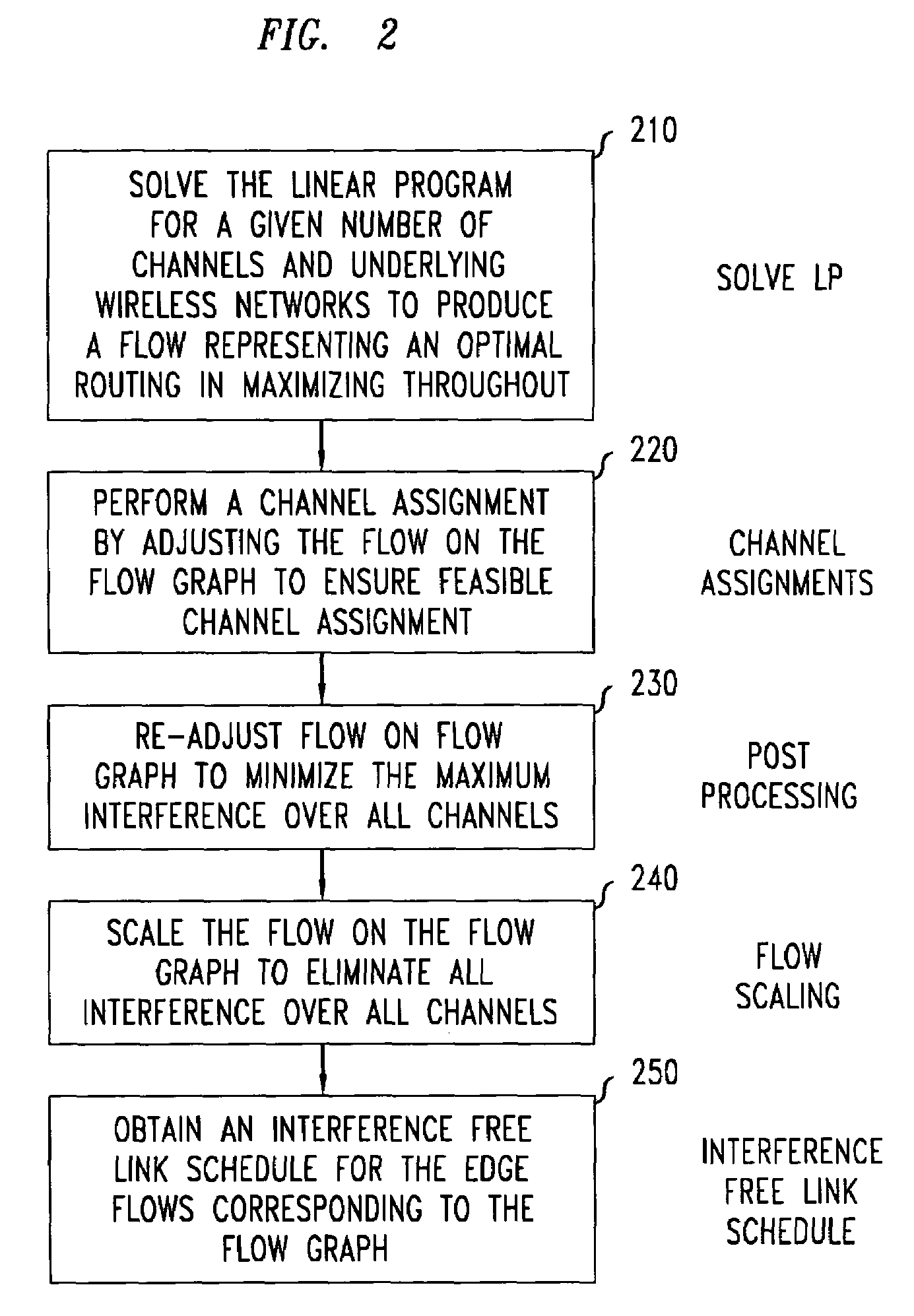Method for channel assignment and routing for multi-radio wireless mesh networks
a wireless mesh network and multi-radio technology, applied in data switching networks, frequency-division multiplexes, instruments, etc., to achieve the effect of maximizing bandwidth allocation
- Summary
- Abstract
- Description
- Claims
- Application Information
AI Technical Summary
Benefits of technology
Problems solved by technology
Method used
Image
Examples
Embodiment Construction
[0025]The following description will illustrate the principles of the invention in the context of an exemplary multi-hop infrastructure wireless mesh network. It should be understood, however, that the invention is not necessarily limited to use with any particular type of IWMN, WMN or other mesh network. The principles of the invention are instead more generally applicable to any wireless mesh network utilizing multi-radios for which channel assignment and routing are critical to optimizing throughput in the network.
[0026]Further, it is to be understood that the phrase “traffic flow” (or, simply, “flow”) generally refers to a group (e.g., two or more) of packets that are to be routed in the network. A “path” in the network generally refers to a set of two or more nodes and one or more links between the nodes. “Nodes” generally refer to elements in the network at least capable of transferring packets. “Links” generally refer to connections between the nodes.
1. System Model
[0027]In t...
PUM
 Login to View More
Login to View More Abstract
Description
Claims
Application Information
 Login to View More
Login to View More - R&D
- Intellectual Property
- Life Sciences
- Materials
- Tech Scout
- Unparalleled Data Quality
- Higher Quality Content
- 60% Fewer Hallucinations
Browse by: Latest US Patents, China's latest patents, Technical Efficacy Thesaurus, Application Domain, Technology Topic, Popular Technical Reports.
© 2025 PatSnap. All rights reserved.Legal|Privacy policy|Modern Slavery Act Transparency Statement|Sitemap|About US| Contact US: help@patsnap.com



